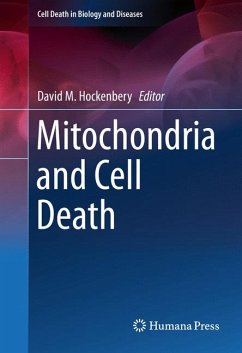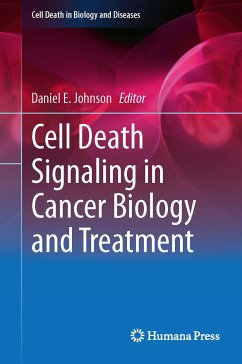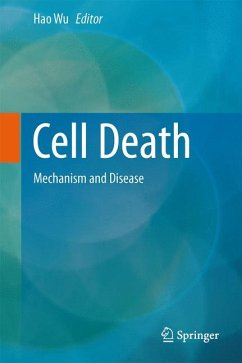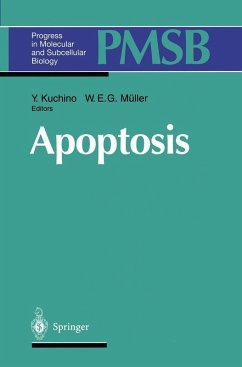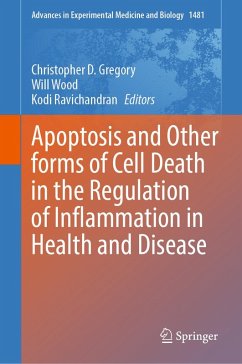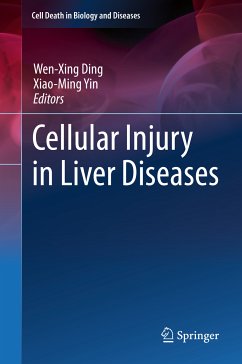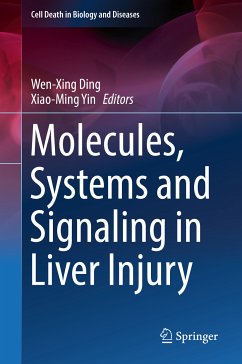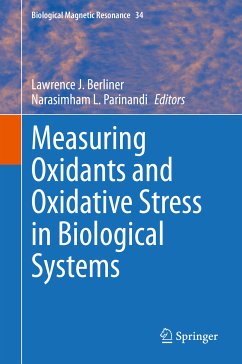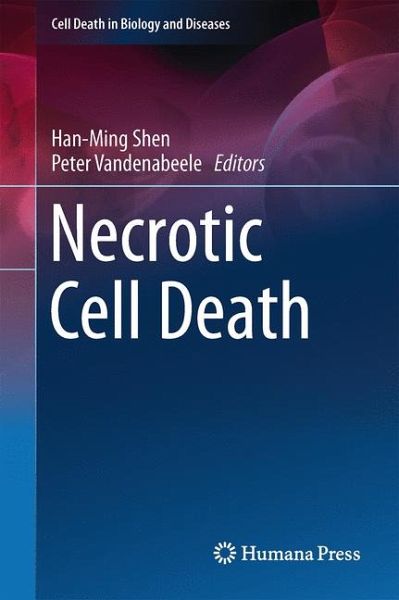
Necrotic Cell Death (eBook, PDF)
Versandkostenfrei!
Sofort per Download lieferbar
80,95 €
inkl. MwSt.
Weitere Ausgaben:

PAYBACK Punkte
40 °P sammeln!
Starting with discussion of basic concepts and the molecular mechanisms of necrosis, this book looks first at several forms of necrotic cell death that have been identified, including necroptosis, autophagic cell death, and PARP-mediated cell death. As necrotic cell death is increasingly known to play a critical role in many physiological processes, the next chapters discuss its effect on metabolism, inflammation, immunity, and development. Necrotic cell death is closely implicated in human diseases like cancer, so the next chapters examine its relevance to human diseases, and final chapters c...
Starting with discussion of basic concepts and the molecular mechanisms of necrosis, this book looks first at several forms of necrotic cell death that have been identified, including necroptosis, autophagic cell death, and PARP-mediated cell death. As necrotic cell death is increasingly known to play a critical role in many physiological processes, the next chapters discuss its effect on metabolism, inflammation, immunity, and development. Necrotic cell death is closely implicated in human diseases like cancer, so the next chapters examine its relevance to human diseases, and final chapters cover methodologies for measuring necrosis. This book presents comprehensive coverage of necrosis from recognized experts from leading academic and medical institutions around the world. ¿In contrast to apoptosis, well-defined as a form of programmed cell death, necrosis used to be considered as accidental (i.e., non-programmed) cell death, usually in response to a severe injury. Accumulating evidence now suggests, however, that necrosis is also programmed and controlled by distinctive "death machinery" in response to various stimuli like oxidative stress or DNA damage.
Dieser Download kann aus rechtlichen Gründen nur mit Rechnungsadresse in A, B, BG, CY, CZ, D, DK, EW, E, FIN, F, GR, HR, H, IRL, I, LT, L, LR, M, NL, PL, P, R, S, SLO, SK ausgeliefert werden.




